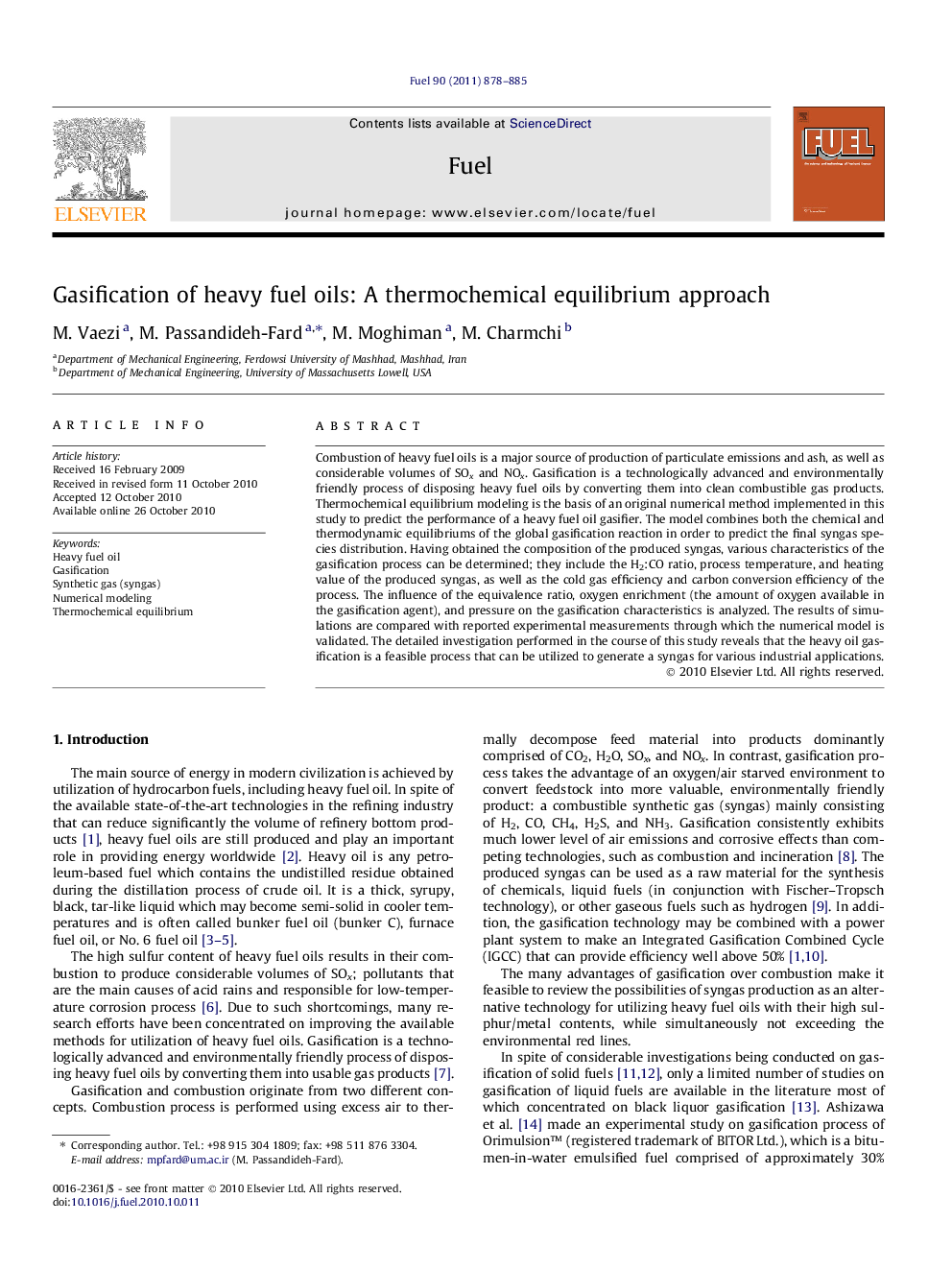| Article ID | Journal | Published Year | Pages | File Type |
|---|---|---|---|---|
| 206682 | Fuel | 2011 | 8 Pages |
Combustion of heavy fuel oils is a major source of production of particulate emissions and ash, as well as considerable volumes of SOx and NOx. Gasification is a technologically advanced and environmentally friendly process of disposing heavy fuel oils by converting them into clean combustible gas products. Thermochemical equilibrium modeling is the basis of an original numerical method implemented in this study to predict the performance of a heavy fuel oil gasifier. The model combines both the chemical and thermodynamic equilibriums of the global gasification reaction in order to predict the final syngas species distribution. Having obtained the composition of the produced syngas, various characteristics of the gasification process can be determined; they include the H2:CO ratio, process temperature, and heating value of the produced syngas, as well as the cold gas efficiency and carbon conversion efficiency of the process. The influence of the equivalence ratio, oxygen enrichment (the amount of oxygen available in the gasification agent), and pressure on the gasification characteristics is analyzed. The results of simulations are compared with reported experimental measurements through which the numerical model is validated. The detailed investigation performed in the course of this study reveals that the heavy oil gasification is a feasible process that can be utilized to generate a syngas for various industrial applications.
